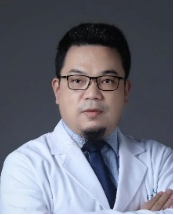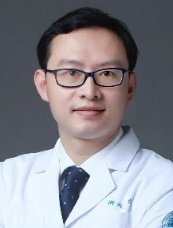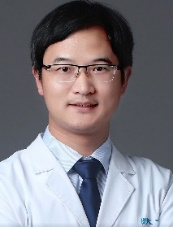Prof. Chaohui Yu
Leading physician of Gastroenterology and Hepatology
Prof. Yu is dedicated to chronic liver disease treatment and drug development.

The Gastroenterology and Hepatology Fellowship Workshop Program at the First Affiliated Hospital, Zhejiang University School of Medicine provides a unique opportunity for GI doctors to pursue advanced training in GI, especially endoscopy.
During your training, your responsibilities increase with your experience, capability, and performance. You will become highly skilled in the multi-disciplinary management of common gastrointestinal and hepatology diseases, endoscopy and gain extensive experience with the clinical and research tools needed for a successful academic career in this field.
The aim of this program is for international communication and we welcome any qualified and devoted GI doctors to collaborate in better treatment for patients.
1. Learning about and performing doctoring on common GI patients (such as gastritis, pancreatitis, GI bleeding, liver cirrhosis, etc.).
2. Changing to observe and learn preliminary endoscopic skills (including gastro-endoscopy and colonoscopy examination), participating in advanced endoscopic treatment (such as EMR, ESD, POEM, etc.) with our endoscopic experts.
3. Participating in rounds each morning as part of a small team working with one staff physician. During rounds, new patients are presented, inpatient management is reviewed, and teaching sessions are held.
4. Outstanding research opportunities in GI, and ample opportunity to complete clinical research projects during the Donor Service rotations.
The goal of our program is to prepare trainees to achieve excellence in the multidisciplinary clinical care of patients with common GI diseases and be familiar with common endoscopic skills. Through exposure to a range of investigators engaged in diverse clinical, translational, and basic research in GI diseases, we also aim to provide our advanced trainees with a strong foundation in clinical investigation to launch them into successful careers in academic medicine and to develop and execute independent research projects with the appropriate mentorship.
The program provides a full-time, 4-week to 3-month training experience. In special circumstances, arrangements can be made for other lengths of training depending on your needs and interests.
Fellows: Qualified applicants for the GI Fellowship must have completed a general internal medicine residency program at an accredited institution.
Focus Areas & Subspecialties:
1. Chronic gastritis
2. Acute/chronic pancreatitis
3. GI bleeding
4. Crohn’s disease
5. Ulcerative colitis
6. Alcoholic liver disease
7. Metabolic-associated fatty liver disease
8. Liver cirrhosis
9. GIST
10. NET
11. Early gastric cancer
12. Early esophagus cancer
13. Colon polyp
Skills:
1. Basic endoscopic skills: gastro-endoscopy and colonoscopy examination, etc.
2. Advanced Skills: EMR, ESD, POEM, etc.
Monday
1st Week: Introduction & Welcome, Program overview and objectives
Weekly: MDT conferences, Complicated case study, co-worker research progress report
Tuesday
Weekly: Outpatient observation, Academic lecture
Wednesday
Weekly: Clinical rounds, Basic endoscopic skills training
Thursday
Weekly: Complicated case study, Case-based discussion, advanced endoscopic skills observation
Friday
Weekly: Journal club, Clinical rounds, Clinical skills training, Special task training
Last Week: Wrap-Up & Reflection, Participant presentations or discussion of key takeaways, Feedback session (e.g. online Q&A)
After each rotation, each faculty member evaluates each fellow according to core competencies of patient care, medical knowledge, practice-based learning and improvement, interpersonal and communication skills, professionalism, and system-based practice.
Faculty members meet with fellows individually for verbal feedback and evaluation. For endoscopy, technical competence is evaluated through specifically designed evaluation forms, and assessment program. Monthly, an aggregate evaluation of a fellow’s clinical progress is conducted through a clinical competency faculty committee.

Leading physician of Gastroenterology and Hepatology
Prof. Yu is dedicated to chronic liver disease treatment and drug development.

Director of GI Department
Dr. Shen is devoted to basic research and clinical practice in inflammatory disease and also in new endoscopic techniques.

Vice Director of GI Department
Prof. Xu is skilled in the treatment of metabolic syndrome and the mechanistic study of metabolic disorders, including obesity, liver steatosis, hyperuricemia, et al.
The program is free of charge.